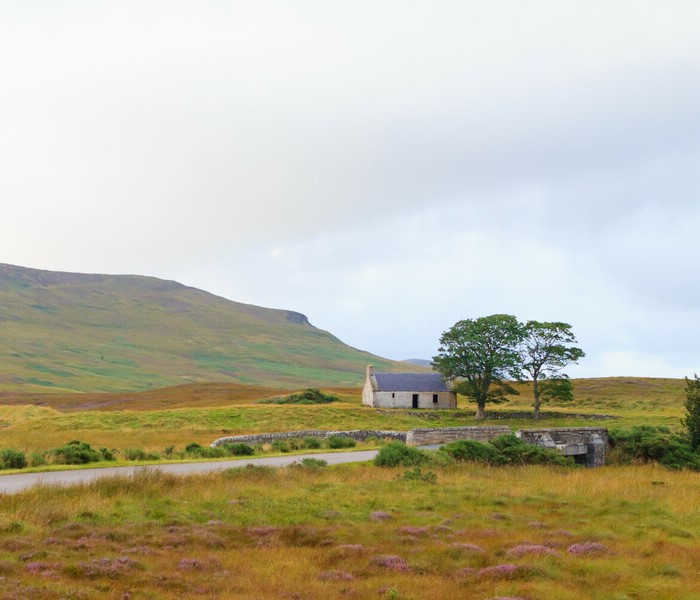In spring 2023, we published our report, A Perfect Storm: Fuel Poverty in Rural Scotland, to understand the factors which produce a ‘perfect storm’ for severe fuel poverty in rural Scotland, and to outline the solutions needed.
Nearly a year on from publishing this paper, we can now report its impact, influence and what might happen next.
On this page
Aims of the research
Fuel poverty levels in rural Scotland are higher than the rest of Scotland, and have been increasing since before the Covid-19 pandemic.
The aim of the research was to put rural fuel poverty and rural energy issues on the agenda. We achieved this by providing a solutions-focused, evidence base of the drivers, impacts, and extent of fuel poverty and extreme fuel poverty in rural Scotland.
You can read the report summary here, or click below to read the report in full and the solutions. Solutions were identified by stakeholders as part of the research process.

Research impact
Impacts of the research, highlighted in more detail below, include:
- The report was cited as key evidence in the Scottish Fuel Poverty Advisory Panel’s recommendation to the UK Government to introduce a social tariff to support low-income and vulnerable households
- The research was submitted to the UK Parliament Scottish Affairs Committee as evidence in its inquiry to explore the impact on rural communities in Scotland of the rising cost of living.
- The research has secured vital funding for projects in rural areas, by evidencing the scale and depth of fuel poverty.
Members of the research team were invited to present the research to the Scottish Fuel Poverty Advisory Panel.
The aims of the Panel are to provide feedback on the Scottish Government’s Fuel Poverty Strategy and make recommendations for improvement. These recommendations were summarised in a report published in May 2023.
Our report is cited as key evidence in the Panel’s recommendation to the UK Government to introduce a social tariff to support low-income and vulnerable households.
The research has also been submitted to the UK Parliament Scottish Affairs Committee as evidence in its inquiry to explore the impact on rural communities in Scotland of the rising cost of living.
Following publication of the report, a motion was lodged by Scottish Labour MSP Rhoda Grant in May 2023 to have the issues raised by the research debated in Scottish Parliament.
To date, 11 MSPs from Scottish Labour and Scottish Liberal Democrat parties supported the motion.
Since the research was published in April 2023, the research has been cited by a number of news outlets, including BBC News, The National, and Scottish Housing News.
These articles cite ‘The Perfect Storm’ as evidence of the disproportionately high levels of fuel poverty in rural areas and help to raise awareness of the issues faced by rural communities.
Changeworks is co-ordinating the Highland Community Energy Partnership with six community anchor organisations representing communities from remote areas which have some of the poorest quality housing in the country. The partnership is currently developing a project to build a robust retrofit supply chain in the Highlands.
The findings from the research have been utilised by Highland Adapts to inform their adaptation work throughout the Highlands. It has also been referenced as evidence in the Carbon Neutral Islands project.
The research has been shared with a team of researchers at Strathclyde University who are undertaking research on behaviour in extreme weather conditions.
This research has secured vital funding for projects in rural areas, by evidencing the scale and depth of fuel poverty.
We utilised the research findings during the design stage of Ecotricity’s 2023-24 Warm Homes Discount Industry Initiative (WHD II) activity. This resulted Ecotricity prioritising fuel poor households in rural communities as their target audience.
The list of solutions demonstrated there is support and buy-in from local stakeholders for a proposed project to recruit and train eight volunteer energy advisors in target communities.
The research is also being used by British Gas Energy Trust to inform its approach to how funding bodies can work in collaboration with delivery partners to tackle fuel poverty in rural communities across Great Britain.
The research involved over 50 organisations across Scotland, including:
- Community groups
- Advice organisations
- Healthcare providers
- Emergency services
- Housing associations
This collaborative approach aimed to bring together diverse expertise and experiences. This has ensured the research represents multiple perspectives and experiences of fuel poverty in rural Scotland, and that the proposed solutions are supported by a broad cross section of organisations and individuals.
Get in touch
For further information on the project, or to commission our research team, contact us today.